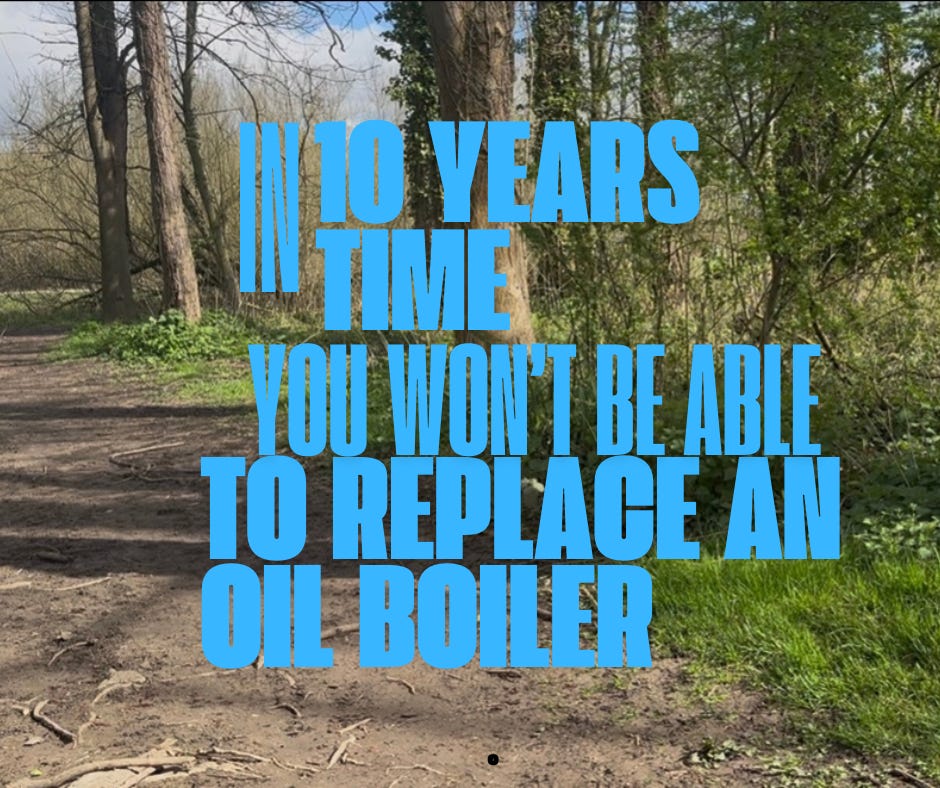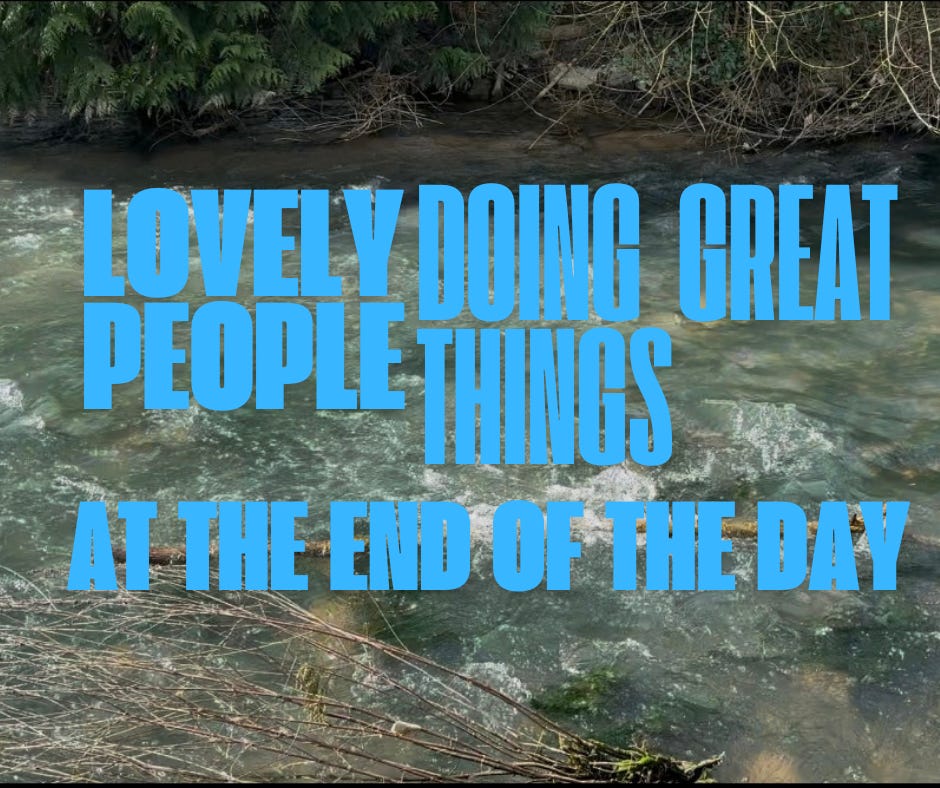WATTS UP CLANFIELD?
Clanfield, an idyllic English countryside village boasting a WI, thriving local pubs & even a community allotment, but it has begun sowing the seeds of progress towards a brighter, greener future.
In 2020, amid the first lockdown, Angus Fraser (a Clanfield resident) was asked by his son, Douglas – an environmentalist — “Dad, why don't we have a community action group?”. And so with the help of his wife, Fiona, and a group of dedicated volunteers One Planet Clanfield was created; a community initiative aimed at providing a forum for locals to learn about sustainable living and live within the means of “one planet”.
According to Angus, who looked at data gathered by Bioregional (and who his son, Douglas, worked for), “In the West, we’re consuming at a rate equivalent to three planets, and in North America, we’re consuming five planets' worth”.
The team at One Planet Clanfield is working to change this and believes that engaging with the community to tackle the problem is the most effective approach.
The group provides the foundation for numerous initiatives in the village, from Sustainability Saturdays to a thriving community allotment - serving as a gathering space for the community, offering regular talks with climate experts, composting sessions, and giving a hands-on approach to growing food sustainably bringing the community closer together - and even a Repair Café.
Getting the community involved in a renewable energy project is no easy feat, however, the response from Clanfield residents has been overwhelmingly positive. Angus shares, “We had 93% of residents in a recent survey saying they’re interested or very interested in joining the scheme.”, and says they took inspiration from a similar movement in the UK.
Lying 5 miles west of Newmarket, Swaffham Prior is a small village in East Cambridgeshire and is the first village in the United Kingdom to use a rural heating network. Using a combination of solar panels, heat pumps, underground storage and electric boilers, heat is delivered via a network of heavily insulated underground pipes.
This allows homes that connect to it, to tap into the heat via existing radiators and hot water appliances. The system (costing roughly 12 million pounds) was installed in 2022 and was made possible through government grants and the residents themselves making payments via their household bills (with the overall cost to be spread over the next 60 years).
One Planet Clanfield is currently in the process of applying for planning permission to establish a heat network similar to the one in Swaffham Prior. This has raised the question: will other communities follow suit? According to Angus, “Yes, not only do I think they will, but we are already seeing similar movements in areas like Nottingham, Kings Langley in Hertfordshire, and probably many other places that we just don’t know about yet.”
However, the group is facing challenges, particularly with energy storage. Beyond obtaining planning permission, they are also focused on finding viable solutions for storing the energy generated.
Andrew Prosser, the local councillor for Witney (near Clanfield), met with the group while speaking at an event in nearby Chipping Norton. Angus approached him for assistance, and Prosser expressed his support, praising the group’s dedication. He remarked that it’s “wonderful to have a group of people who are really motivated to do this and offer local advice.”
Councillor Prosser also emphasised the significant impact this project could have on the wider community, noting, “People getting involved directly at various stages of the project is far more effective than simply hearing about it from someone else,” adding that the “enthusiasm for this initiative is high”.
But enthusiasm alone isn’t enough to overcome the financial and logistical hurdles alone. With prices increasing, it’s very tempting to stay with the old ways rather than upgrade to new, often expensive alternatives.
“Right now, oil is relatively cheap” Angus notes, “so people won’t see an immediate advantage to this scheme. But what they don’t realise is that in 10 years’ time, they won’t be able to replace or install a new oil boiler. Eventually, they’re going to be cold, or they’re going to have to move on.” The solution - heat pumps.
Charlotte Lee, CEO of the Heat Pump Association explains “Heat pumps capture heat from the air, ground, or water, which is then passed through a heat exchanger. This is absorbed by refrigerant gas, raising the temperature, after which the heat is transferred into water that flows through radiators and hot water systems.”
But this again isn’t a cheap option in the short term; air source heat pumps (the most commonly installed in the UK) usually total between £6,500 to £11,500 (the overall price including VAT, labour costs and the Boiler Upgrade Scheme grant).
Canfield’s energy project also draws inspiration from Denmark’s Copenhill (Amager Bakke), a waste-to-energy plant in Copenhagen that generates electricity and heat while serving as a recreational space. The innovative facility is part of Denmark’s district heating network, which powers 60% of the country’s residents. Unlike Denmark, Clanfield was not designed with this heating system in mind, so the challenge for Clanfield - home to many charming, listed buildings - is retrofitting the houses with access to the heat network and minimising heat loss through insulation where possible. However, this is not an essential prerequisite in terms of planning but conserving heat and preventing unnecessary heat leakage are other key goals of the group.
Despite these challenges, the community’s commitment to renewable energy remains strong. As Angus puts it, “It’s not just about the technology; it’s about changing the way we think and live.”
Clanfield is boldly paving the way and setting an example for how rural communities can tackle climate change and create sustainable, long-term solutions, proving that the power to create change is in all of our hands, or as Angus eloquently puts it, “lovely people doing great things, and that's where it comes down at the end”.





